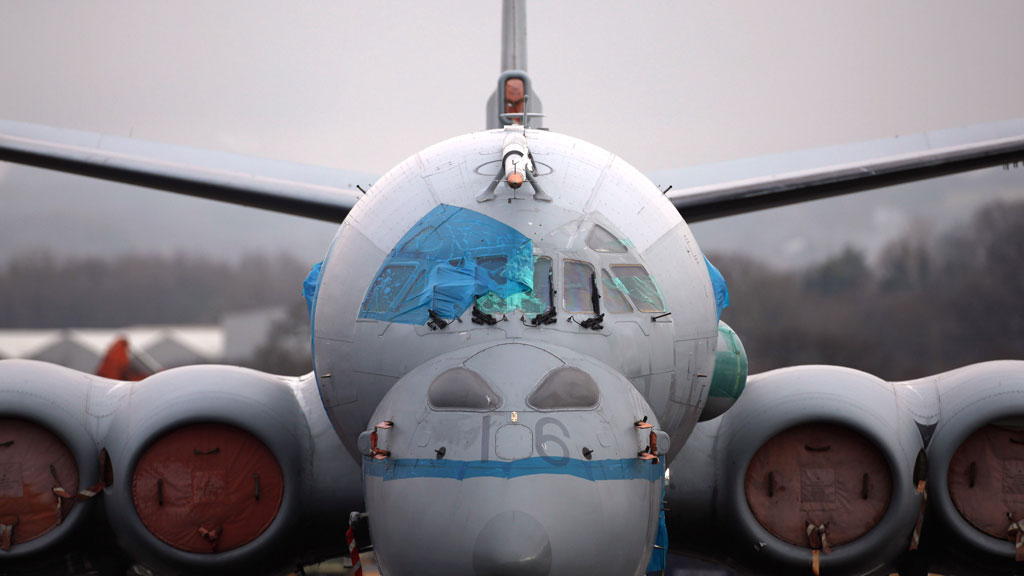MPs’ concern over spy plane decision
The government’s decision to scrap Nimrod surveillance aircraft poses a risk to Britain’s security, according to an all-party committee of MPs.

The MRA4 programme was cancelled in the 2010 strategic defence and security review (SDSR) as ministers looked for savings. The planes, which cost £4bn to build and had never been used, ended up as scrap metal.
In a report published today, the defence select committee says the decision has created a “capability gap” in maritime surveillance, leaving the UK dependent on other nations for support.
The MPs are not the first defence experts to warn about the risks of scrapping the planes. A the time of the review, Air Chief Marshal Sir Brian Burridge, former commander-in-chief, Strike Command, told Channel 4 News that although he was satisfied with the broad thrust of the govenment’s plans, he had reservations about the decision to scrap Nimrod.
We are unconvinced that the MoD has the capacity to respond to any escalation in the risks that may appear beyond the UK’s shores. James Arbuthnot, defence select committee
He said: “That makes me nervous, not only because I spent the early part of my career flying it in the Cold War.” Nimrods had been used in Iraq and Afghanistan to support special forces, said Sir Brian, and “in an ideal world no-one would have wanted that”.
‘Massive gap’
Last year, a number of former defence chiefs signed a letter to the Daily Telegraph saying “a massive gap in British security has opened”.
They added: “Nimrod would have continued to provide long-range maritime and overland reconnaissance – including over the UK – anti-submarine surveillance, air-sea rescue coordination, and perhaps most importantly, reconnaissance support to the Navy’s Trident submarines.”
The report says that although investigations by the Ministry of Defence (MoD) have concluded that a maritime patrol aircraft is needed, there will be no decision on whether to commission planes until the next SDSR in 2015.
The committee says this is compounded by the loss of the intelligence-gathering capabilities of four Broadsword-class Type 22 frigates and is likely to worsen with the planned withdrawal of Sea King helicopters in 2016.
Escalation
Committee chairman James Arbuthnot said: “We are unconvinced that the MoD has the capacity to respond to any escalation in the risks that may appear beyond the UK’s shores.
“Furthermore we believe the risk is likely to worsen in the medium term as further maritime surveillance capabilities are withdrawn or not yet filled.”
The committee accuses the MoD of sending “mixed messages” over the need for a maritime patrol aircraft like the Nimrod.
“On one hand it says that there is no requirement for such an aircraft and that it is not funded or in the programme but on the other hand it acknowledges that its absence is a risk and something may need to be done.
“The MoD must explain why it is satisfactory to wait until 2015 or beyond before deciding how to close the capability gap in maritime surveillance, particularly as the MoD acknowledge that a MPA is the solution in the short to medium term.”
‘Tough decisions’
Armed Forces Minister Andrew Robathan said: “UK maritime surveillance is being delivered by a wide range of military assets, including our surface ships, submarines, Merlin and Sea King helicopters, Sentry and Hercules aircraft and we are also co-operating with our allies.
“Tough decisions had to be taken to get the MoD’s books back into balance and cancelling the Nimrod MRA4 programme was the right decision.”